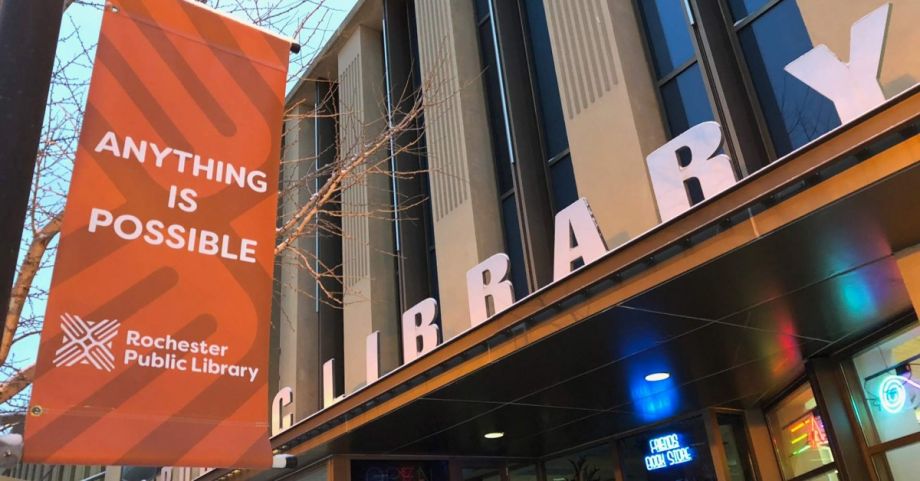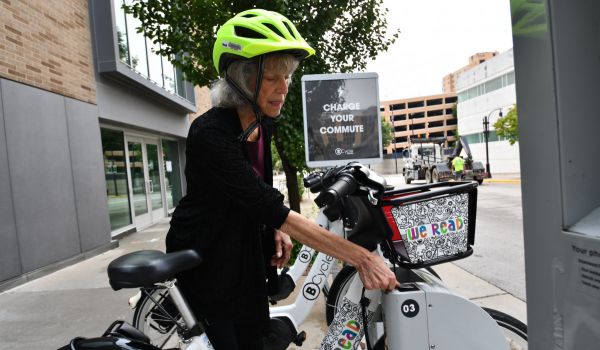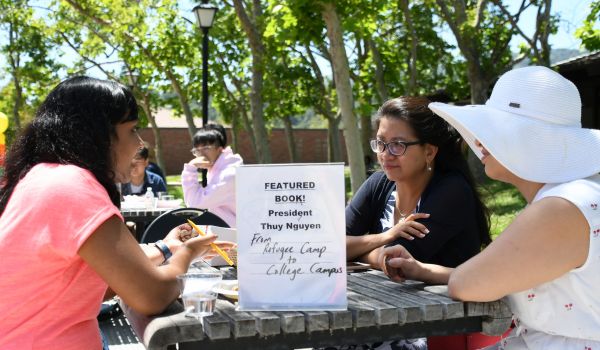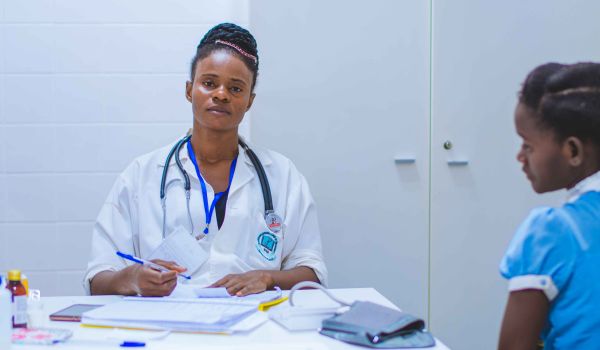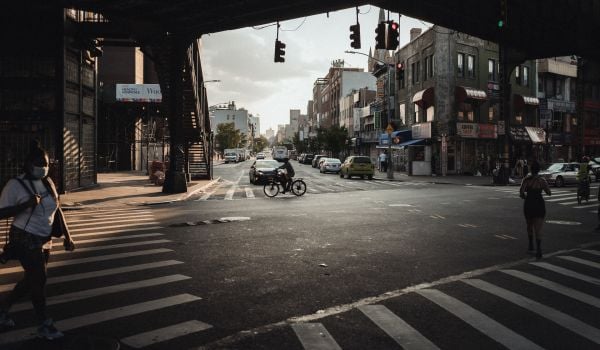As the coronavirus crisis continues to reshape the way communities support and care for their members, libraries have been one of the public institutions, after healthcare organizations, that are closest to the frontlines.
Because libraries act as lifelines for many of the most vulnerable populations — the homeless, low-income individuals and families, and those with limited mobility, among others — their loss is often felt particularly hard.
And yet, libraries of all sizes and shapes are rising to the occasion in new and creative ways, whether that means expanding online services, hosting storytimes or other programming via video chat, or sending books by mail to residents.
It’s not only books and media, however, that some libraries are offering. Many are branching out into other community services, joining with other municipal departments to provide a full spectrum of services to citizens during the pandemic.
One of those is the Rochester Public Library in Rochester, Minn. On March 28, shortly after the library buildings were closed to the public as part of the statewide stay at home order, library staff, working with the city government, opened a COVID-19 hotline for residents. Answering community questions, after all, is something library staff are in an ideal position to do, says Kim Edson, the Rochester Public Library’s head of readers services.
“One of the special skills we’re able to provide in times of crisis is access to information,” Edson says. “We answer all kinds of questions as part of our normal business. Everyone has a place that they trust, or where they go to get community information. The library serves that purpose for many people.”
The hotline was set up as part of Rochester’s Continuity of Operations Plan (COOP), a system of disaster planning that lays out guidance for how specific critical services will continue given a variety of circumstances — a pandemic, for example.
The library is part of that COOP plan, and in line with that planning, library staff began answering community calls (in addition to regular library calls) once the hotline went operational at the end of March.
In order to ensure that every caller receives accurate, up-to-date information, the library has been working collaboratively with other city departments to compile a standardized list of resources and information.
“We are constantly working on the list of resources in the community, and sharing those resources so everyone’s getting a consistent message,” Edson says.
The questions coming through fall into a wide variety of categories, from questions about social distancing, to medical questions, which are referred to one of the city’s two nurse triage lines.
Other calls that come in are from concerned citizens reporting gatherings of people. “We’ve had calls along the lines of, ‘People are playing pickleball in the field across the street, and we don’t think they should be doing that,’” says Edson. “We report it, and then the emergency operations center assigns someone to take care of it — in that case, it went to the Parks and Recreation department and law enforcement. When they saw that people weren’t voluntarily stopping, they went and took the rims off the basketball courts.”
Many calls also relate to travel or employment issues. “We had one question from a man in Nebraska who wanted to travel to a funeral in Wisconsin, and he wanted to know if he would be stopped by state patrol. We also get some that have to be referred to the city attorney’s office, for example, ‘My employer’s asking me to do this and this, and I think it’s in violation of the law.’”
And of course, the hotline serves many of the city’s underserved populations, as well as those suffering economically from the effects of the virus. Calls about how to get food from local food banks, hot meals for schoolchildren who are no longer in school, how to apply for unemployment — Edson and her fellow library staffers hear all this and more.
“We’re averaging about 60 calls a day,” Edson says. “Mornings are busiest, evenings tend to be slowest.” In accordance with Minnesota’s stay at home order, all library staff are working from home, and most are using their cell phones to answer phone calls.
In fact, the COVID-19 hotline isn’t the only way that the library is helping those in need in Rochester.
Staffers are making “social connectedness” calls to library users, to check in on them and make sure they have whatever resources they need, be that food, medicine, books, or access to the library’s digital collection.
In addition, the library is collaborating with the city and the surrounding Olmsted County to set up a day shelter for unsheltered people in the town’s civic center. Like so many other homeless shelters across the nation, Rochester’s homeless shelter had to close because it couldn’t provide enough space for social distancing.
“We serve unsheltered people all the time,” Edson says. “This seemed like a natural extension of what we already do.”
Staff at the temporary day shelter are working to connect guests with the social services they need, from food assistance, to housing and other services.
“These are unusual times,” says Edson. “I think we’ve been very able to demonstrate the capabilities of the library to our community. We’re doing what we’ve always done, but on steroids.”

Elizabeth Pandolfi is a freelance arts and culture journalist. She is the former arts editor of the Charleston City Paper, and her work has appeared in Art and Antiques magazine, Charleston magazine, WNC magazine, and other publications.

